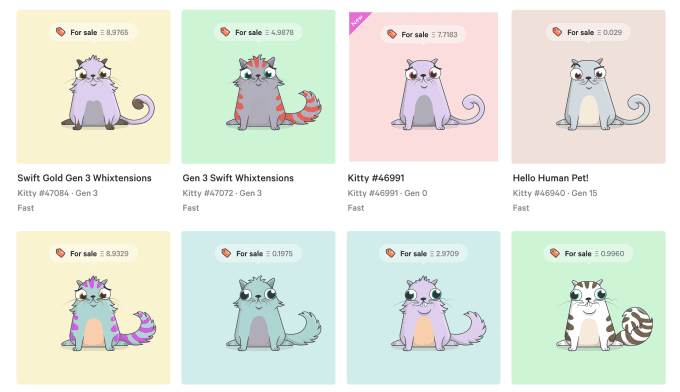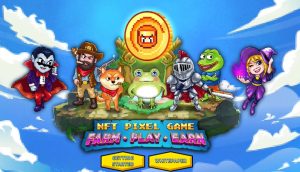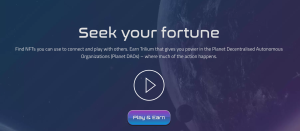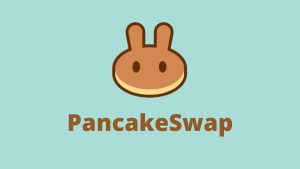< BLOG
What Is a DApp: How Do You Make an App That Nobody Owns and Brings YOU Profit?
27 MAY 2022
What do we know about the DApp? D stands for decentralized. DApp stands for decentralized application. But what does decentralized mean? It means that the backend of the application is decentralized, that it does not exist on a single server, but in a decentralized computer system — for example, a blockchain. This technology is used by businesses that need to decentralize. Thanks to this technology, information stored on the blockchain is difficult to fake, change, or delete. Consequently, users cannot be cheated on. This increases user loyalty and they use the app longer.
But does this mean that decentralization is needed everywhere? To understand it better, let’s start by finding out more about decentralized application development and what is the difference between centralized and decentralized applications.
Centralized applications. These are, for example, the popular Uber or Instagram. Yes, these apps are installed on millions of smartphones, but their server part is controlled by one organization. The principle is simple: someone uploads a copy of the app, and it works by sending and receiving information from that server. The app won’t work without contact with that server. If the centralized server fails, the application stops working on user devices until the problem is fixed.
Decentralized applications. These are applications that decentralize their server part instead of locating it on a single server. DApps exist in a decentralized computer system — a peer-to-peer network or a blockchain that interacts directly with the functions of smart contracts (we will talk about them a little later). This way, if one of the servers goes down, users still have access to the app.
As we said before, decentralization is related to blockchain — a continuous chain of blocks. It is called a chain because the data from each block includes some of the information from the previous block and links the blocks together. The entire chain of operations and the list of owners are stored on computers of many independent users. Even if one or more computers fail, the information won’t be lost. Thus, decentralized applications use the main advantages of blockchain — transparency, and immutability of data. It means that everyone can see the information, no one can change or delete it. DApps can be created on the Ethereum platform and developed for a variety of purposes, including games, finance, and social media. Ethereum is a cryptocurrency and a blockchain technology platform that supports a wide range of decentralized applications (DApps).
Ethereum is a cryptocurrency and a blockchain technology platform that supports a wide range of decentralized applications (DApps).
Ethereum allows users to create and execute smart contracts on a decentralized network. A smart contract is a computer protocol that enables and controls transactions and is stored in a blockchain. The smart contract code performs certain operations and interacts with other smart contracts.
Benefits of decentralized application development
Decentralized applications exist on the Ethereum platform, so their main trick is monetization. Users pay in cryptocurrency for invoking some functions of such apps.
The peculiarity of decentralized systems is that information about transactions and their time, number of participants, and wallet numbers are stored in the network. It cannot be corrected, replaced, or deleted because it is not stored in one place centrally, but on all the devices participating in the network at once. Because of this, the system exists more transparently for the user, which causes trust. Plus, such a system is harder to attack because it is more difficult for fraudsters to access the server because it is decentralized. This is why people are more willing to use decentralized applications. This is easier to understand with a lottery example. If users know that the lottery is not run by a single organizer, but by a network that operates according to a preconceived scheme, they trust it more.
Users can also earn money in DApps, for example, by selling their NFTs (non-fungible tokens). There is a popular game called Crypto Kittens, in which the users can breed, collect and sell kittens. Each of the existing pets is 100% unique, they cannot be copied, deleted, or destroyed. As a player, the user can put a price on their Crypto Kittens, which can be re-bought by another player. So the most expensive kitten was sold for 247 ETH, which currently equals more than 300 thousand U.S. dollars.
– Reliable data storage, the information cannot be deleted
– No possibility of attacks on the system
– Users can earn by selling previously purchased NFTs
So, what is a DApp? To make it easier to understand, let’s break it down with some general examples. These are:
Lottery. We’ve already mentioned this example above. By moving away from a single lottery organizer (server) to which the owner has access, the transparency of the application increases. In the case of DApp, the lottery is a system that functions according to pre-built rules. Users know that the network makes the lottery draw, so they are more loyal.
Auction. Transparency is the defining success factor. The use of DApp makes it possible to guarantee the immutability of the bids and strictly record the time when they were made, thus eliminating the possibility of any manipulation. Therefore, online auctions are a promising segment for decentralized applications.
Gambling. It has the same point. Users can trust the network because they see the rules of the app. With DApps, it is possible to provide full transparency of bets and secure storage of users’ funds.
Transaction fees. A fairly obvious way is to charge a fee for using the service. For example, a marketplace. A user buys something in the app from another user. Most of the money goes to the seller, and you get a percentage for mediation.
Premium. The user can use the app for free and have access to limited functionality. To earn money from the app, you can offer them a premium version with enhanced features to improve the user experience.
Advertising. Decentralized apps also have a place for advertising banners or inserts. DApp owners can earn money on the application by showing advertisements for third-party projects.
Donations. If your dApp project is aimed at solving some global problem or some social cause, you can place a donation button on your app or website or send the link to it to social entrepreneurs to donate.
Bomb Crypto. The most popular decentralized app in Binance Smart Chain and the eighth-most popular decentralized app on the market. Bomb Crypto is an NFT “Play to Earn” game. It allows users to control bomber heroes, explore their Metaworld, and defeat monsters and bosses to earn rewards. Users earn NFTs simply by playing the game. They can then sell NFT items in the marketplace to earn money.
Players can travel to different planets, all separate decentralized autonomous organizations (DAOs). These DAOs receive Trillium daily through smart contracts, and players can also receive a portion of the TLM if they are part of that planet’s DAO.
You can learn more about developing decentralized applications in our article How to build a DApp.
What is a DApp advantage? They are the same as the blockchain’s:
– No owner. Once an app is deployed, it cannot be deleted or fixed.
– Embedded payments. The Ethereum platform has its own cryptocurrency, so you don’t have to think about integration with payment systems during decentralized application development.
– Zero downtime. The blockchain app will only fail if the system itself fails. Since a blockchain application cannot be patched, it is difficult to access and attack.
– Anonymity. Decentralized applications typically do not reveal the identity of the user, only the cryptocurrency wallet is needed.
If you’re not sure whether you need decentralized application development yet, you can ask Brivian for a consultation. Leave your request here and our manager will contact you!
But does this mean that decentralization is needed everywhere? To understand it better, let’s start by finding out more about decentralized application development and what is the difference between centralized and decentralized applications.
What kind of applications are there?
To make it more convenient to understand, let’s divide all apps into two notional groups:Centralized applications. These are, for example, the popular Uber or Instagram. Yes, these apps are installed on millions of smartphones, but their server part is controlled by one organization. The principle is simple: someone uploads a copy of the app, and it works by sending and receiving information from that server. The app won’t work without contact with that server. If the centralized server fails, the application stops working on user devices until the problem is fixed.
Decentralized applications. These are applications that decentralize their server part instead of locating it on a single server. DApps exist in a decentralized computer system — a peer-to-peer network or a blockchain that interacts directly with the functions of smart contracts (we will talk about them a little later). This way, if one of the servers goes down, users still have access to the app.
As we said before, decentralization is related to blockchain — a continuous chain of blocks. It is called a chain because the data from each block includes some of the information from the previous block and links the blocks together. The entire chain of operations and the list of owners are stored on computers of many independent users. Even if one or more computers fail, the information won’t be lost. Thus, decentralized applications use the main advantages of blockchain — transparency, and immutability of data. It means that everyone can see the information, no one can change or delete it. DApps can be created on the Ethereum platform and developed for a variety of purposes, including games, finance, and social media.
Why is Ethereum used for decentralized applications?
 Ethereum is a cryptocurrency and a blockchain technology platform that supports a wide range of decentralized applications (DApps).
Ethereum is a cryptocurrency and a blockchain technology platform that supports a wide range of decentralized applications (DApps).Ethereum allows users to create and execute smart contracts on a decentralized network. A smart contract is a computer protocol that enables and controls transactions and is stored in a blockchain. The smart contract code performs certain operations and interacts with other smart contracts.
Benefits of decentralized application development
Decentralized applications exist on the Ethereum platform, so their main trick is monetization. Users pay in cryptocurrency for invoking some functions of such apps.
The peculiarity of decentralized systems is that information about transactions and their time, number of participants, and wallet numbers are stored in the network. It cannot be corrected, replaced, or deleted because it is not stored in one place centrally, but on all the devices participating in the network at once. Because of this, the system exists more transparently for the user, which causes trust. Plus, such a system is harder to attack because it is more difficult for fraudsters to access the server because it is decentralized. This is why people are more willing to use decentralized applications. This is easier to understand with a lottery example. If users know that the lottery is not run by a single organizer, but by a network that operates according to a preconceived scheme, they trust it more.
Users can also earn money in DApps, for example, by selling their NFTs (non-fungible tokens). There is a popular game called Crypto Kittens, in which the users can breed, collect and sell kittens. Each of the existing pets is 100% unique, they cannot be copied, deleted, or destroyed. As a player, the user can put a price on their Crypto Kittens, which can be re-bought by another player. So the most expensive kitten was sold for 247 ETH, which currently equals more than 300 thousand U.S. dollars.
 One of the first decentralized games to become widely known is CryptoKitties, released on the Ethereum platform in late 2017.
One of the first decentralized games to become widely known is CryptoKitties, released on the Ethereum platform in late 2017.
– Reliable data storage, the information cannot be deleted
– No possibility of attacks on the system
– Users can earn by selling previously purchased NFTs
What does DApp mean to business?
In short, DApps are needed where we have to decentralize some logic for our product. So that information is in the public domain and cannot be deleted or corrected. Decentralization helps to gain the trust of users so that they have no doubts about how honest and transparent your app is. But not all ideas require decentralization. Somewhere you just don’t need it, because there is no point in deceiving users in Uber or Spotify. Also, decentralized apps are only used by people who use cryptocurrency.So, what is a DApp? To make it easier to understand, let’s break it down with some general examples. These are:
Lottery. We’ve already mentioned this example above. By moving away from a single lottery organizer (server) to which the owner has access, the transparency of the application increases. In the case of DApp, the lottery is a system that functions according to pre-built rules. Users know that the network makes the lottery draw, so they are more loyal.
Auction. Transparency is the defining success factor. The use of DApp makes it possible to guarantee the immutability of the bids and strictly record the time when they were made, thus eliminating the possibility of any manipulation. Therefore, online auctions are a promising segment for decentralized applications.
Gambling. It has the same point. Users can trust the network because they see the rules of the app. With DApps, it is possible to provide full transparency of bets and secure storage of users’ funds.
How can DApp be monetized?
Some ways to monetize decentralized apps are similar to traditional ways to make money from centralized apps. The difference is that in regular apps you pay for purchases with money, while in DApps, you pay with cryptocurrency.Transaction fees. A fairly obvious way is to charge a fee for using the service. For example, a marketplace. A user buys something in the app from another user. Most of the money goes to the seller, and you get a percentage for mediation.
Premium. The user can use the app for free and have access to limited functionality. To earn money from the app, you can offer them a premium version with enhanced features to improve the user experience.
Advertising. Decentralized apps also have a place for advertising banners or inserts. DApp owners can earn money on the application by showing advertisements for third-party projects.
Donations. If your dApp project is aimed at solving some global problem or some social cause, you can place a donation button on your app or website or send the link to it to social entrepreneurs to donate.
What are the DApp examples?
DApps can include exchanges, games, trading platforms, social platforms, and more. What decentralized applications are popular in the world right now?Bomb Crypto. The most popular decentralized app in Binance Smart Chain and the eighth-most popular decentralized app on the market. Bomb Crypto is an NFT “Play to Earn” game. It allows users to control bomber heroes, explore their Metaworld, and defeat monsters and bosses to earn rewards. Users earn NFTs simply by playing the game. They can then sell NFT items in the marketplace to earn money.
 The look of Bomb Crypto opening screen
The look of Bomb Crypto opening screen
Players can travel to different planets, all separate decentralized autonomous organizations (DAOs). These DAOs receive Trillium daily through smart contracts, and players can also receive a portion of the TLM if they are part of that planet’s DAO.
 The look of ALien Worlds screen
The look of ALien Worlds screen

The logo of PancakeSwap What is a DApp? This is, for example, when you can buy and sell virtual pancakes for cryptocurrency.
How to make a decentralized application?
The decentralized application development takes place on a blockchain, so the main steps will be to work on the smart contract and the front-end. Since the blockchain will only store the part of the logic that needs to be decentralized, it’s necessary to develop a server to store the functionality that goes beyond the transactions on the network. In addition, you will need to develop a server system that integrates analytics, allows to run reports and manage some aspects of the DApp.You can learn more about developing decentralized applications in our article How to build a DApp.
So, what is a DApp?
Let’s summarize. Decentralized applications are needed where the user has a reason not to trust us. Decentralization ensures the transparency of the application, which increases user loyalty and trust. The more users trust your product, the more successful it will be in the market.What is a DApp advantage? They are the same as the blockchain’s:
– No owner. Once an app is deployed, it cannot be deleted or fixed.
– Embedded payments. The Ethereum platform has its own cryptocurrency, so you don’t have to think about integration with payment systems during decentralized application development.
– Zero downtime. The blockchain app will only fail if the system itself fails. Since a blockchain application cannot be patched, it is difficult to access and attack.
– Anonymity. Decentralized applications typically do not reveal the identity of the user, only the cryptocurrency wallet is needed.
If you’re not sure whether you need decentralized application development yet, you can ask Brivian for a consultation. Leave your request here and our manager will contact you!
Related Articles